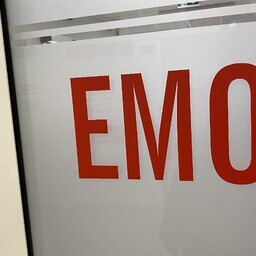Haiglad üritavad leevendada
EMO ülekoormust
. Nad palkavad eriõdesid, kes aitavad kergemate tervisemuredega patsiente. Sellised
eriõed
töötavad alates maist näiteks Põhja-Eesti Regionaalhaiglas (PERH) ja Ida-Tallinna Keskhaiglas (ITK). Mõlemad haiglad soovivad rohkem
koostööd perearstidega
.
EMO ülekoormust
Tõlge fraasile: EMO ülekoormust
EN
overload of emergency departments
eriõed
Tõlge fraasile: eriõed
EN
special nurses
koostööd perearstidega
Tõlge fraasile: koostööd perearstidega
EN
cooperation with family doctors
Haiglad tahavad saata patsiente, kes ei vaja
erakorralist meditsiiniabi
,
perearsti vastuvõtule
. Praegu ei saa EMO-d seda teha, sest määrus nõuab, et visiidid peavad lõppema eriarsti või -õe vastuvõtuga. Uus idee on, et EMO-d saaksid patsiendid perearsti juurde suunata.
erakorralist meditsiiniabi
Tõlge fraasile: erakorralist meditsiiniabi
EN
emergency medical care
perearsti vastuvõtule
Tõlge fraasile: perearsti vastuvõtule
EN
to a family doctor's appointment
Perearstid tahavad kiiresti kasutusele võtta
ühtse triaažisüsteemi
. See tähendaks, et patsient saadaks
õige koha
, kuhu ta peab minema oma terviseprobleemi lahendamiseks. Telefonitriaaž on ka üks võimalus, et patsient ei peaks haiglasse tulema.
ühtse triaažisüsteemi
Tõlge fraasile: ühtse triaažisüsteemi
EN
unified triage system
õige koha
Tõlge fraasile: õige koha
EN
the right place
Perearstide Selts juht Elle-Mall Sadrak ütleb, et perearstid on aastaid rääkinud
ühtse triaažisüsteemi
vajalikkusest. See süsteem peaks olema kättesaadav ka patsiendile endale. Ühtne triaažisüsteem töötab edukalt mitmetes riikides.
ühtse triaažisüsteemi
Tõlge fraasile: ühtse triaažisüsteemi
EN
unified triage system
Sadraku sõnul on Eestile sobilik süsteem Inglismaa Manchesteri triaažisüsteem. Praegu arvutab
tervisekassa
, kui palju see süsteem maksaks. Patstientide ümbersuunamine perearstidele ei tooks suurt
koormuse kasvu
.
tervisekassa
Tõlge fraasile: tervisekassa
EN
Health Insurance Fund
koormuse kasvu
Tõlge fraasile: koormuse kasvu
EN
increase in workload
Hospitals are trying to alleviate the overload of emergency medicine departments (EMO). They are hiring specialists who help patients with minor health issues. These specialists have been working since May, for example, at the North Estonia Medical Centre (PERH) and the East Tallinn Central Hospital (ITK). Both hospitals want more cooperation with family doctors.
The hospitals want to refer patients who do not require emergency medical care to family doctors. Currently, EMO cannot do this because the regulation requires that visits must end with a specialist doctor or nurse consultation. The new idea is that EMO could refer patients to family doctors.
Family doctors want to quickly implement a unified triage system. This would mean that patients are directed to the right place where they need to go to solve their health issue. Telephone triage is also an option so that patients do not have to come to the hospital.
The head of the Estonian Family Doctors' Association, Elle-Mall Sadrak, says that family doctors have been talking about the need for a unified triage system for years. This system should also be accessible to the patients themselves. A unified triage system works successfully in many countries.
According to Sadrak, the Manchester triage system in England would be suitable for Estonia. Currently, the Health Insurance Fund is calculating how much this system would cost. Redirecting patients to family doctors would not bring a significant increase in workload.

